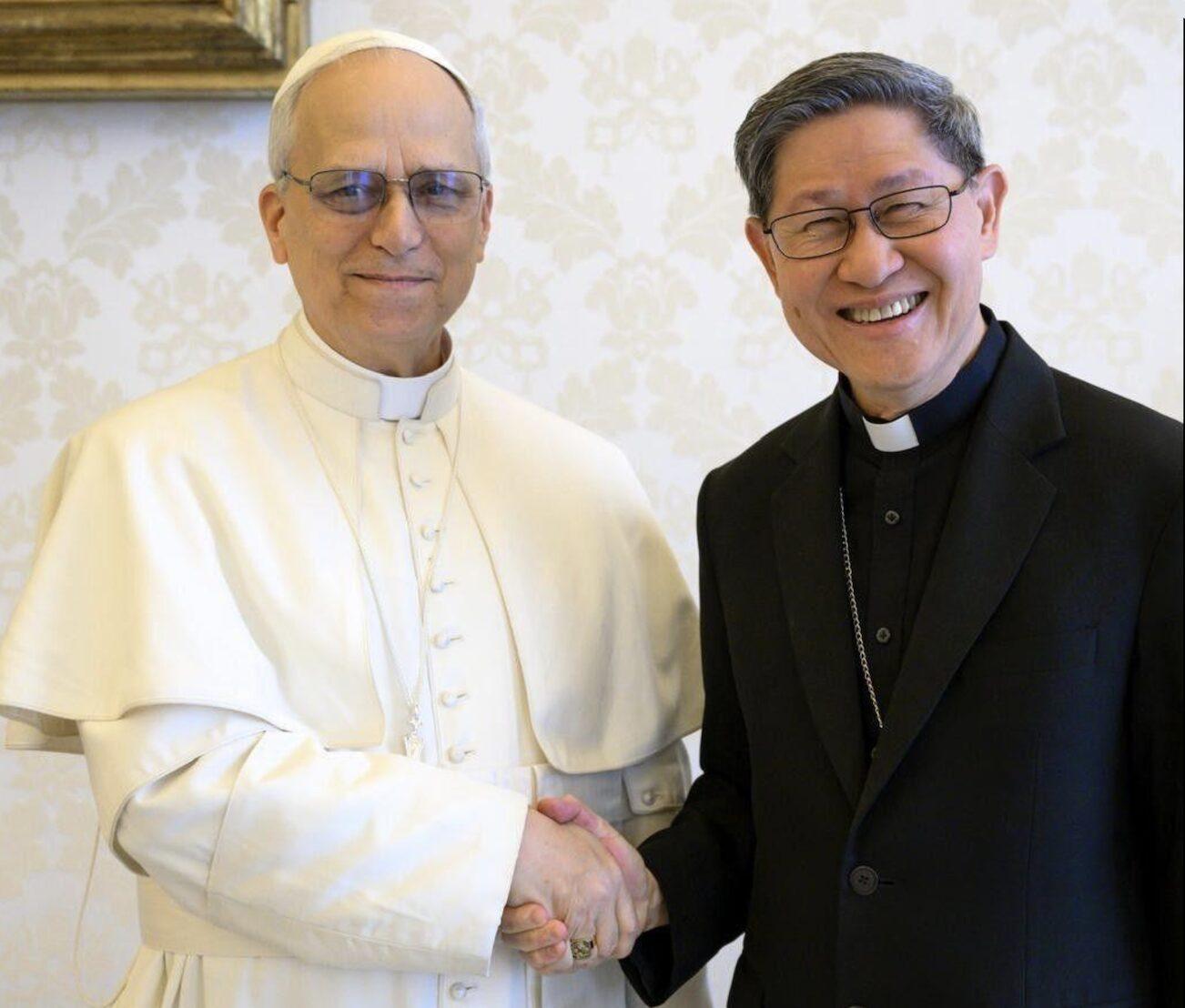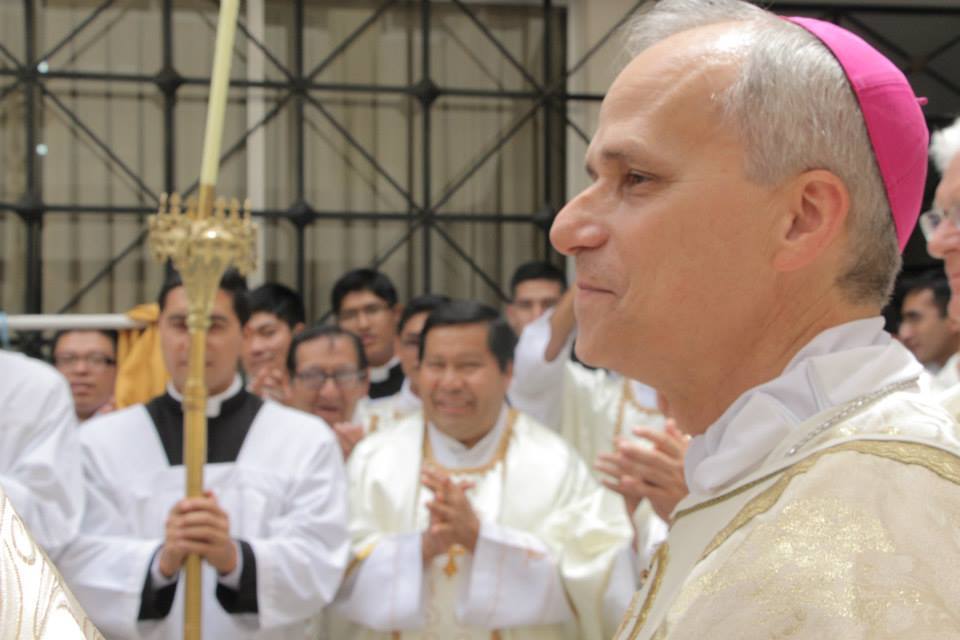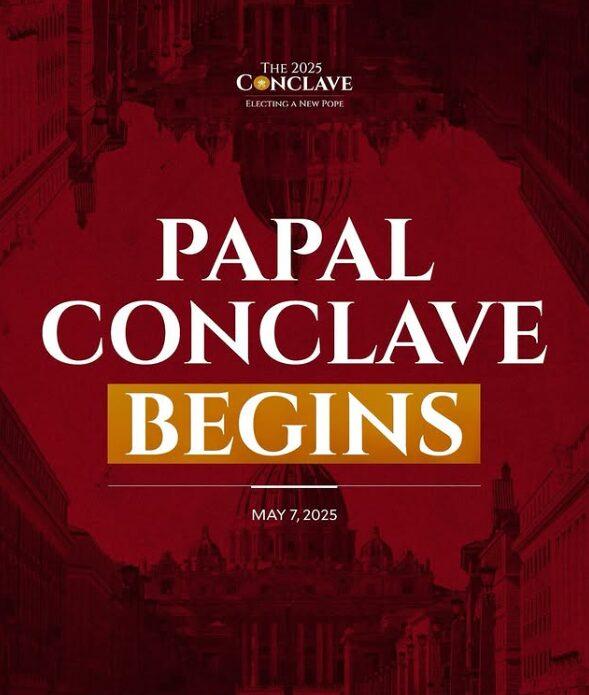A major Catholic church meeting on a longstanding family issue is taking place in September 2015, and Pope Francis’ decision is the ultimate deal breaker.
The World Meeting of Families will take place in Philadelphia next September, serving as a forum for “debating issues on the agenda for the world Synod of Bishops at the Vatican the following month,” according to two archbishops in charge of the event.
The Synod of Bishops is an advisory body for the Pope that will meet next year to further discuss and debate family issues related to the Catholic Church worldwide. As many as 15,000 people including the Pope are expected to take part in the meeting, which will have a flexible agenda to allow for a range of topics to be discussed.
“It’s a celebration of family life; the Catholic Church’s commitment to support families. We’re bringing up all the issues that would have appeared in the preparation documents for the synod as part of our reflection,” said Archbishop Charles J. Chaput of Philadelphia, regarding plans for the World Meeting. “I can’t imagine that any of the presenters won’t pay close attention to what’s happening in Rome.”
One of the most-widely debated issues has been brought to attention and echoes a general call for mercy in the church: whether Catholics who divorce and remarry without an annulment can receive Holy Communion.
Five high-ranking cardinals have debated with one of Pope Francis’ favorite theologians, German Cardinal Walter Kasper, over this issue. They wrote a book called “Remaining in the Truth of Christ,” in which the cardinals present their argument. The book asserts that Catholic doctrine is clear, and there are no grounds to argue an ancient practice of the Church.
Kasper, 81, was praised as “a great theologian” by Pope Francis, who also trusted him with “setting the tone” for the two-year study on marriage, divorce, and family opened by the Vatican on October 5. He delivered a memorable speech to all cardinals in March of this year on the family issues that would be discussed during the Synod, and also brought up the topic on divorced and remarried Catholics.
During the speech Kasper asked if, in special cases, Catholics who have been divorced and remarried could continue to receive the Eucharist after doing penance.
The question sparked a worldwide debate among theologians, scholars, believers and non-believers alike.
“In the Creed we say we believe in the forgiveness of sin. If there was this shortcoming, and it has been repented for—is absolution not possible? And if absolution, then also Holy Communion? There are many themes, many arguments in our Catholic tradition that could allow this way forward,” Cardinal Kasper said in an interview with Commonweal Magazine.
Though he believes the rules cannot be completely changed, Kasper says that the matter should be looked at on a case-by-case basis, and that mercy and forgiveness is the very essence of God.
However, many conservatives—including the five cardinal authors—believe Kasper’s suggestion goes deeply against Jesus Christ’s teaching on the indissolubility of marriage.
Cardinal George Pell, another of Pope Francis’ key advisers and a powerful man in the Vatican, supports this view.
In his new book, Pell argues that debating something that has always been a clear-cut standpoint in church doctrine can lead to a “counterproductive and futile search for short-term consolations.”
“Every opponent of Christianity wants the church to capitulate on this issue,” Pell writes. “We should speak clearly, because the sooner the wounded, the lukewarm and the outsiders realize that substantial doctrinal and pastoral changes are impossible, the more the hostile disappointment (which must follow the reassertion of doctrine) will be anticipated and dissipated.”
What does Francis have to say? The Pope, known to be lighthearted and a simple man of kindness, seems to have a more forgiving point-of-view. He praised Cardinal Kasper’s speech, calling it a “profound theology” that represented a true love for God’s people.
The Pope has also asserted Catholic doctrine and convened for a church-wide debate, but he calls for a more merciful, pastoral approach to the matter. He reportedly told an Argentine woman earlier this year that she could receive Communion, even though her husband’s first marriage was never annulled.
The Cardinals who take a conservative standpoint with their book defending traditional Catholic teachings include two of the highest-ranking Vatican officials, the head of the Vatican doctrine office, and the US head of the Vatican’s supreme court.
It is rare for cardinals to publicly point another cardinal out for being wrong about church teaching, and even rarer to point out and question the Pope, the highest-ranking leader of the Catholic Church.
The issue on marriage and Communion has caused a widespread debate that many conservatives are growing uncomfortable with, questioning Pope Francis’ words and actions. Still, others are happy to see important conversations and significant changes finally happening in one of the world’s oldest and most traditional faiths.
(With reports from Associated Press and the Catholic News Service)





